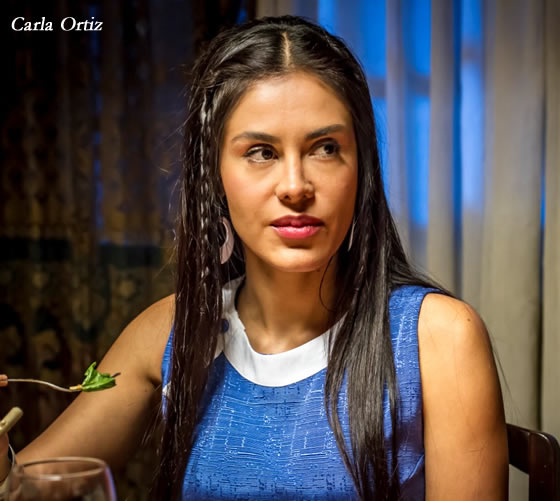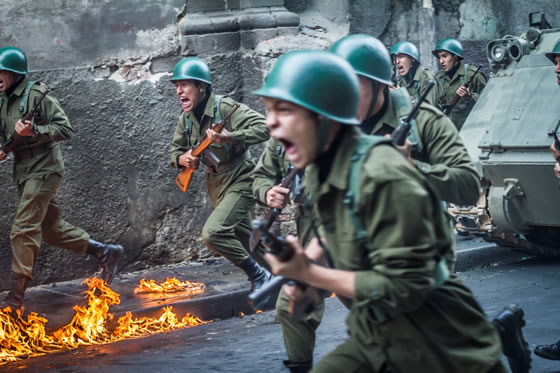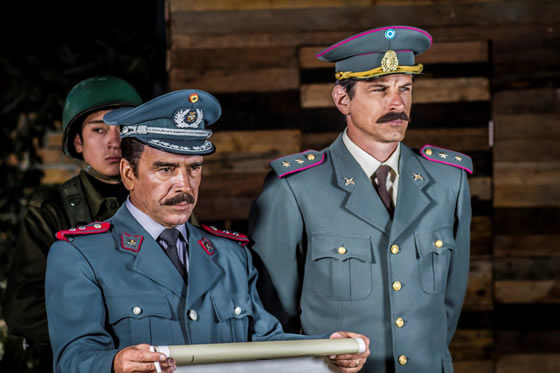 During the 70’s, under the so-called “Operation Condor” military dictatorships in Argentina, Chile, Bolivia, Paraguay, and Uruguay took away all possibilities for freedom and peace, carrying out the worst bloodshed and painful era in the modern history of these countries.
During the 70’s, under the so-called “Operation Condor” military dictatorships in Argentina, Chile, Bolivia, Paraguay, and Uruguay took away all possibilities for freedom and peace, carrying out the worst bloodshed and painful era in the modern history of these countries.
The story takes place in Bolivia when JOSE a decorated Condor General has a heart attack and looks for redemption by telling the dark secrets of his past to his only son.
JOSE takes us on a journey through Operation Condor to understand the factual scenarios created by these military regimes, introducing us to the protagonists from which their lives were stolen. Honor, loss and love, become victims of a plan in which betrayal is the ultimate sacrifice. A story that remembers those we thought “Forgotten”.
CARLA ORTIZ, producer and star of Bolivia’s entry for Foreign Language Oscar, “FORGOTTEN” (“OLVIDADOS”). Directed by Carlos Bolado, “FORGOTTEN” is an unbelievably powerful film framed around Operation Condor, the system of military repression coordinated by the dictators of Argentina, Bolivia, Brazil, Chile, Paraguay and Uruguay in the ’70s during one of the worst of dictatorships in South America. The movie, which has set records and earned rave reviews throughout South America, focuses on a decorated Condor General who has a heart attack and looks for redemption by telling the dark secrets of his past to his only son. Ortiz is one of the few women producers with a Foreign Language entry in what was singled out from a crowded field as exceptional by the Bolivian Minister of Culture Pablo Groux. The film’s added value — besides its stunning artistic integrity — is its allegiance to the history of the contentious era rarely covered effectively cinematically. Although Argentina and Chile have produced films about the era of dictatorships, “Forgotten” is the first time that any motion picture has specifically addressed Operation Condor with honesty and authenticity. (112 mines.)
Bijan Tehrani: Can you tell us a little bit about Olividados and your contribution to the project?
Carla Ortiz: I became much more involved than I originally planned. I ended up having to co-write, be a producer and act in the film as one of the protagonists. The balance of all of this was very tough because of the machismo in Latin American and the subject matter but I also knew that this was an important film to make. We wanted to make a film that depicted the historic memory of Latin America, especially concerning Bolivia. We wanted to capture the results of an extreme right government and, now that we are extremely left, we felt it was important for the new generation to understand where we were coming from. The story is a legend because these stories have to come from memories since no one wants to talk about it; therefore, it was a huge challenge to make this film. Even though in the beginning, the film and subject matter were controversial, Forgotten did become the most successful film in the country in the past 8 years. It raised awareness and increased the political activity of the oppressed people in the country and those who were exiled. It also increased awareness of those who were the few survivors of the families and opened a lot of debates. It has become much more than a film when all we planned to do was remember a time in history that has been ignored and acknowledge those that fought for their democracy and the freedom to express their rights. This was something that we wanted to do so the younger generation and everyone can understand how we are able to live in the situation that we are living today.
BT: What was your specific involvement in the project?
CO: First of all, it was my first time as a producer. I originally hired seven different writers but the team did not like any of the scripts that were being submitted. I then hired another writer and he basically forced me to co-write with him. We ended up writing the film together which, honestly, was never in my plans and after that of course ended up co-writing the script. Next, the director and producer asked if I would work with the  actors; again, I was in the position to get more involved than I wanted to. Finally, I had to detach myself from the production and be an actress, but I am very grateful for the experience and everything that I learned as a woman, actor and film maker.
actors; again, I was in the position to get more involved than I wanted to. Finally, I had to detach myself from the production and be an actress, but I am very grateful for the experience and everything that I learned as a woman, actor and film maker.
BT: Were you involved with casting the film?
CO: I wasn’t too involved in the casting of the film since our director is a very well known Mexican director who has a lot of followers and huge pool of talent to pick from. Obviously, the director usually knew what he wanted and was the one making most of the decisions. Even as a producer, one defers to the director and he definitely had more power over these choices.
BT: This film is bringing awareness to events that happened in Bolivia, how has the film been accepted by the audiences?
CO: The audience reaction to the film has been amazing. When we premiered in South America, the response was so powerful that for five minutes after the credits, no one said a word or left the room! Since we don’t really have a movie industry in Bolivia, we broke all the standards and had the whole experience going in a very positive direction. From every point of view that you can imagine, and with everyone telling us that we can even surpassed the films made in the United States, it was a huge compliment and the the film was critically acclaimed and accepted in a way that I can only describe as amazing. Newspapers began writing about these political issues again and we received praise from cities all over Bolivia. Still, some of the intellectuals would not accept the fact that there was a female producer- it was like living another torture scene as a female producer and it created a lot of movement in the country.
BT: How do you see your chances at the Academy Awards?
CO: I think that if that if the Academy would acknowledge this film it would be something very brave. This would indicate that American citizens are acknowledging something that affected so many people in South American countries. It is the first time that this story is not told only as a documentary but as a powerful feature film. I think we do have a very good chance for an Oscar since the message is important for the world to know this story and it is told from a very strong political and emotional viewpoint.

